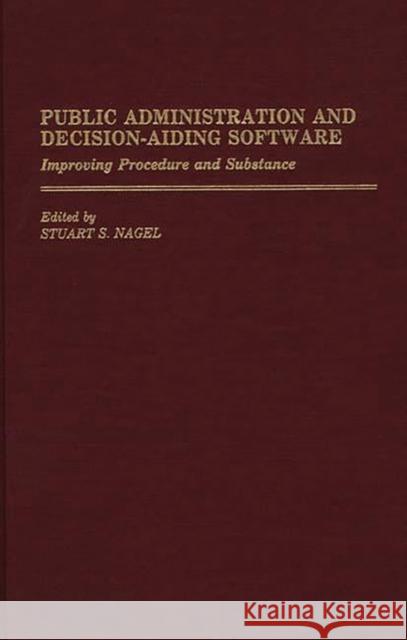Public Administration and Decision-Aiding Software: Improving Procedure and Substance » książka
Public Administration and Decision-Aiding Software: Improving Procedure and Substance
ISBN-13: 9780313275180 / Angielski / Twarda / 1990 / 280 str.
This contributed volume offers a summary of the latest ideas and applications concerning decision making software, as applied to administrative decision making and public policy-making. Stuart Nagel, the editor of this work, defines the essence of decision-aiding software to be software that is designed to enable users to process a set of (1) goals to be achieved, (2) alternatives available for achieving them, and (3) relations between goals and alternatives in order to choose the best alternative, combination, allocation, or predictive decision-rule. Containing contributions from both practitioners and theorists, this book should be of immediate value to those professionals involved in the field of public administration.
The book is organized in terms of the major fields of public administration, which have been divided into staff/procedural activities, and into line/substantive activities. The first part of the book deals with cross-cutting procedures, including organization theory, policy analysis, and financial management. The second part deals with substantive chapters, including criminal justice, health, environmental-energy, and transportation as administrative fields. The third part of the book involves chapters which combine procedures and substance. It includes developmental policy, with chapters emphasizing the perspectives of people from developing countries toward the relevance of computers and decision-aiding software. It also includes the perspective of people from more developed countries trying to apply policy analysis methods to developmental policy. The third part also deals with public administration education. It emphasizes data banks that are available through telecommunications systems to aid in teaching various aspects of public administration procedures and substance. This book should be of interest to public administrators and scholars of the field.











